What happens to exotic alligators, tortoises and boa constrictors found at Jersey Shore?
The discovery of an alligator in Monmouth County, like the one in Neptune that was reported to authorities last weekend, might seem like a rogue occurrence.
It's not.
Monmouth County SPCA Executive Director Ross Licitra said this is the third alligator his agency has dealt with since 2015.
“The last one, we had people living in Rumson and it was in their basement in a huge tank,” Licitra said.
The owner came to the inevitable realization that alligators should not be pets and called for help.
Abandoned alligator: SPCA seeks info on person who left gator in Neptune
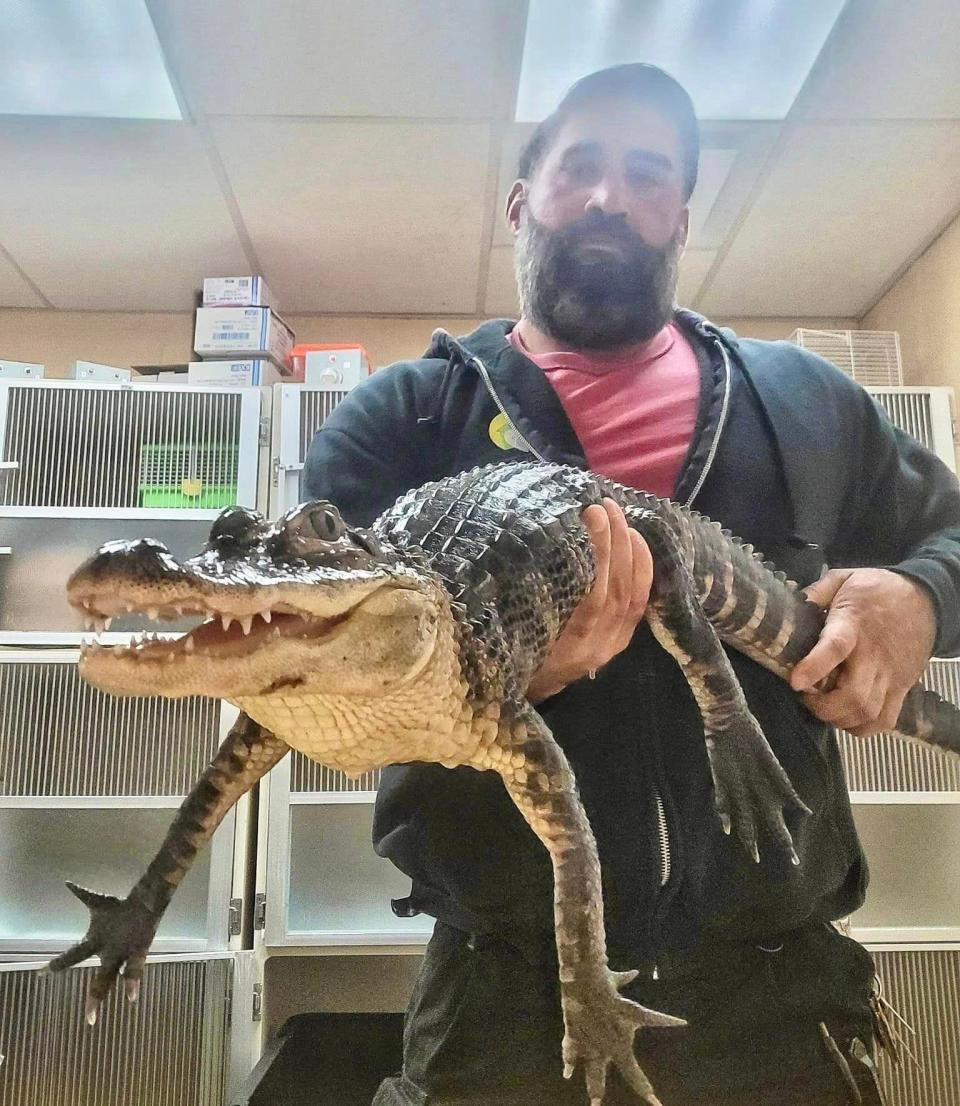
“The alligators are really cute when they’re very tiny, and they’re easy to handle,” Licitra said.
That changes quickly. The alligator found Sunday was more than 3 feet long at about 2 years old.
“People see these exotic animals and get lured into having something that’s different,” Licitra said. “Then they find out the reality that the animal requires special care and they actually grow.”
Owning an alligator is illegal in New Jersey. Yet John Bergmann, director of Popcorn Park Zoo in Lacey, said he gets one or two phone calls a year about pet alligators or caimans — a smaller cousin of the species — gone awry.
“They get too big, they get a little dangerous, you can’t afford to feed them or can’t afford to get them (housed) in something larger, and they end up abandoned someplace,” Bergmann said. “Now you’re putting it on a humane society to find a place for it, and it’s not easy.”
Exotic pets? Not so rare at the Jersey Shore
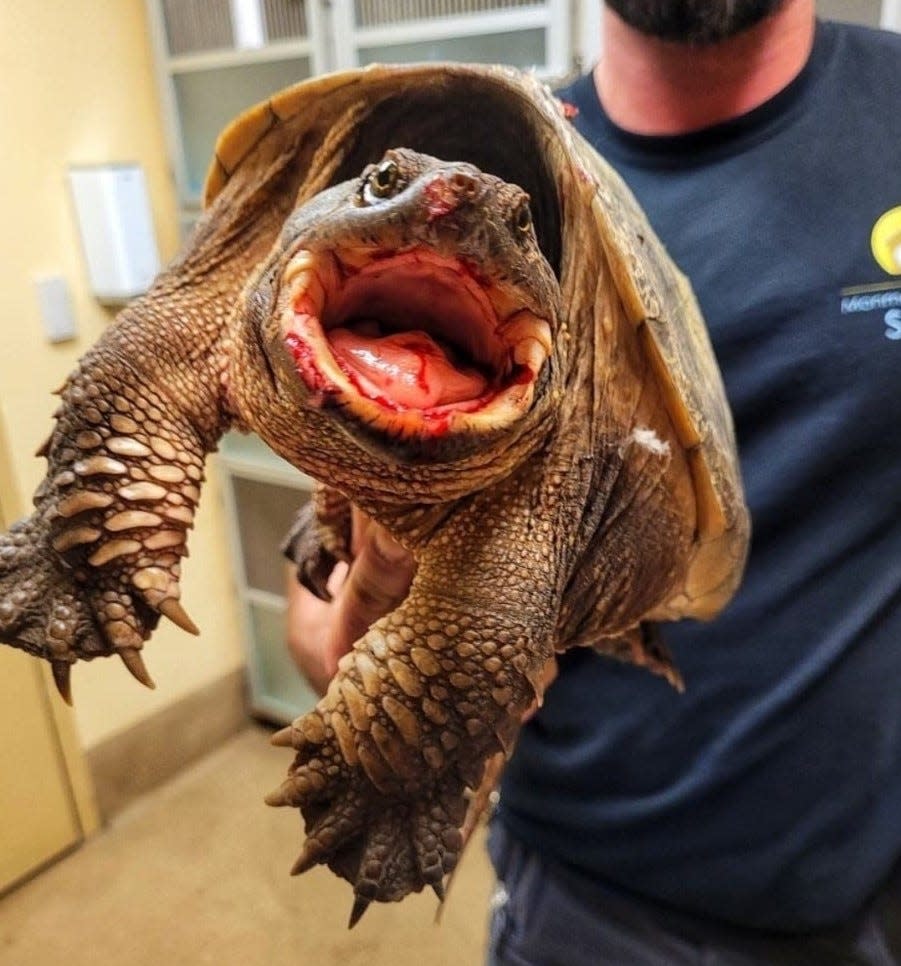
'This thing is living in their bathtub'
Unfortunately, none of this is new to animal-welfare folks.
“The other reptiles people get tired of or become too big are tortoises, iguanas, some monitors, and snakes,” Bergmann said.
Some snakes and turtles are legal to own without a permit in New Jersey. Others are not.
“People go to other states that have very little regulatory restrictions on these types of animals and they wind up bringing in these exotic turtles or alligators or snakes,” Licitra said. “The lure wears off eventually and the next thing you know this thing is living in their bathtub and they wind up abandoning it.”
The problem is not limited to reptiles.
Emus and tigers and bears, oh my! Five animal sanctuaries to visit at the Jersey Shore
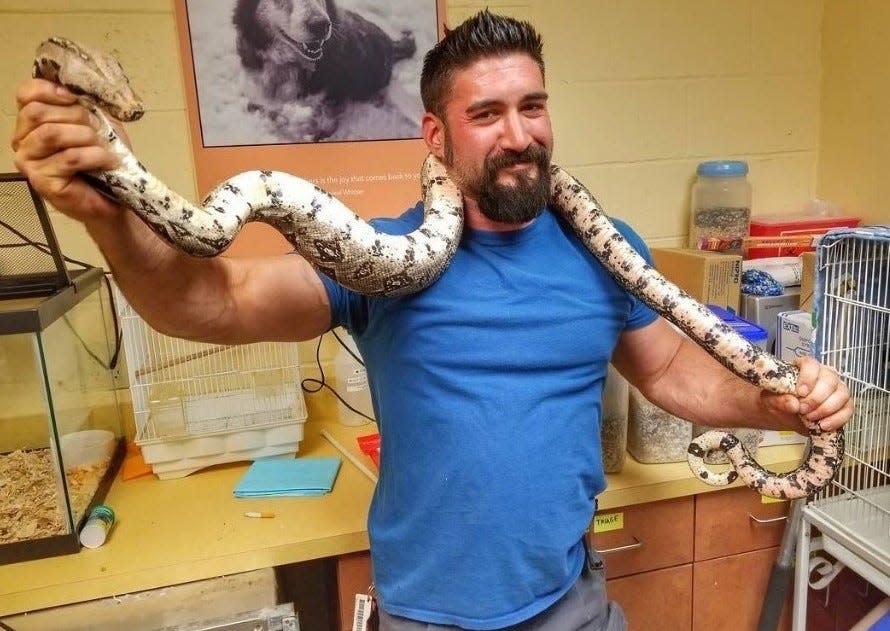
“On Easter people get the bunnies to give to their kids, and then the bunnies grow up and they’re hopping all over the place and people don’t know what to do, so they open the cage and let it hop away,” Licitra said. “These rabbits are domesticated and the next thing you know they’re standing next to people in a county park looking for help.”
With certain reptiles like alligators, it should be easy to foresee the challenges ahead.
“These things are highly regulated because they require special care, we don’t know what diseases they could bring, and they present a danger to the wildlife in an area where they’re not indigenous,” Licitra said. “This is not just for protection of human beings, but also local species.”
An animal outside its typical habitat — an invasive species — can wreak havoc on an ecosystem and its resident animal population. Yet the lure of the exotic is a booming business.
“A few years ago we did a raid of a cabin in Howell where a guy had all these turtles and scorpions and tarantulas,” Licitra said. “He was shipping them all over the world. It looked like he was pulling in close to a million dollars a year in sales.”
A tiger loose in Jackson: 20 years after the 'Tiger Lady,' it's still hard to believe
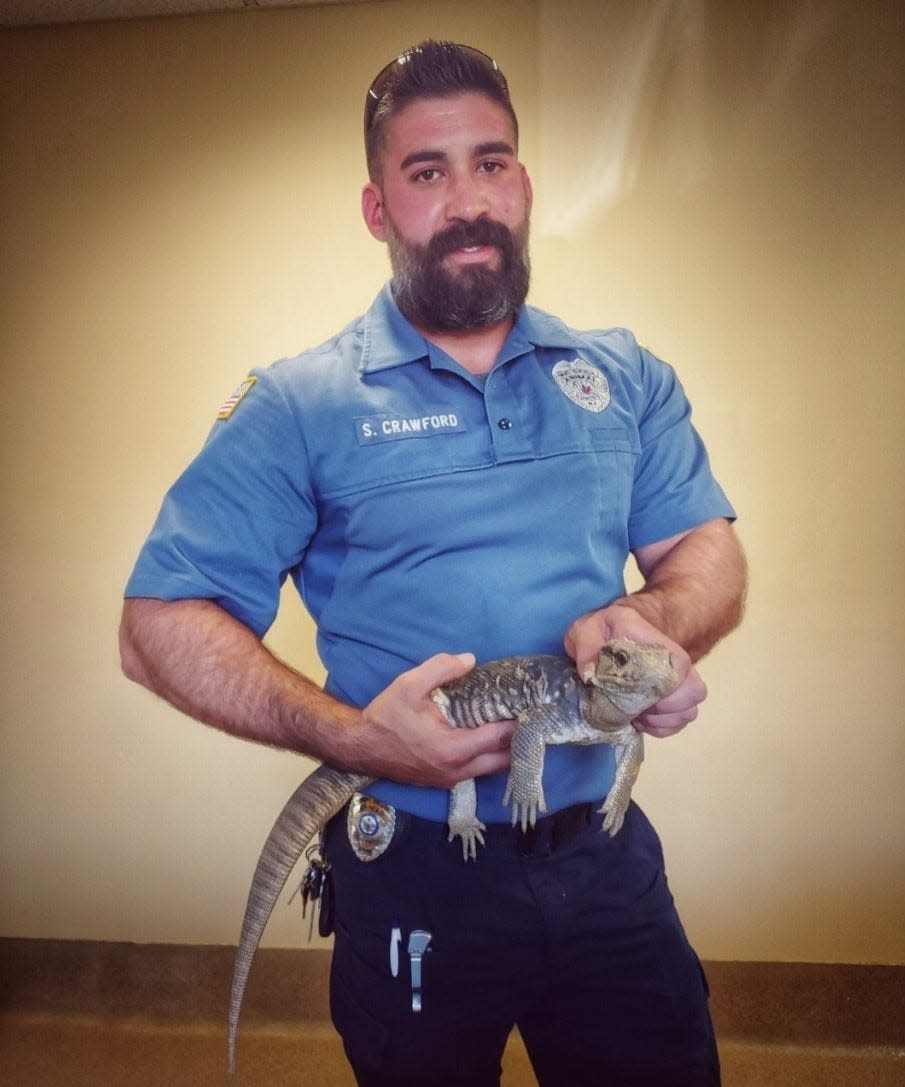
Finding homes
What becomes of the exotic animals that the Monmouth County SPCA encounters? The Neptune alligator is headed to a home at Cape May County Zoo before moving on to a reptile and alligator farm in Tampa, Florida. Licitra said his organization has distributed animals to other refuges in the past, including Popcorn Park Zoo, which has some caimans but not enough room for an alligator.
Rabbits, birds and smaller lizards the SPCA may shelter and adopt out themselves. The rabbits get names. Exotic animals generally don't. The Neptune alligator remains nameless — but drives home an important message for the public.
New Jersey day trips to see animals: Six Flags, Bronx Zoo, and 17 more zoos and aquariums
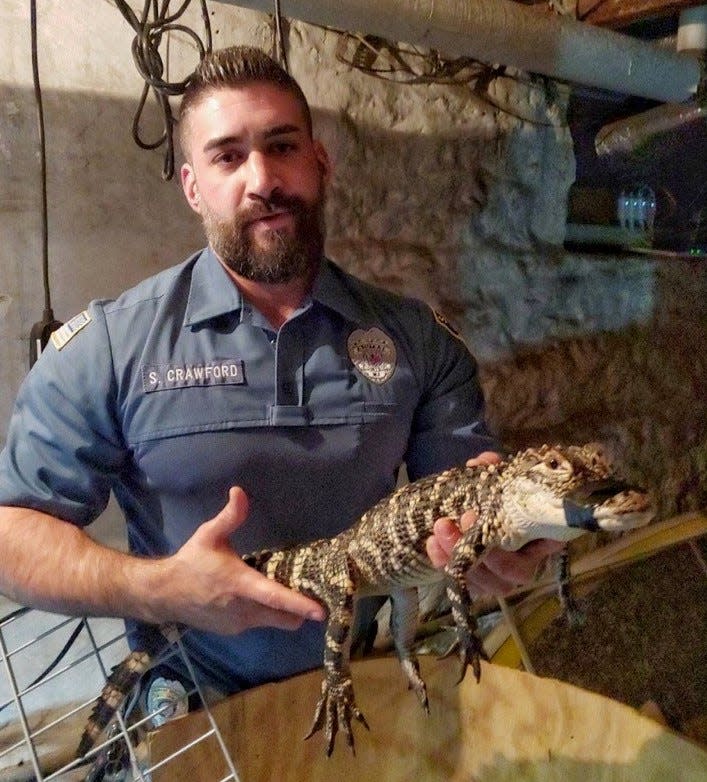
“The SPCA understands the lure of wanting to have an exotic animal, but these animals require an enormous amount of special care and attention,” Licitra said. “It’s not always best for you, the animal or the environment. Think very carefully when you go to (an exotic animal) show, especially shows out of state.”
For more information about exotic animals that may be owned in New Jersey without a permit, visit https://nj.gov/dep/fgw/pdf/xotic_exemptspp.pdf.
Jerry Carino is community columnist for the Asbury Park Press, focusing on the Jersey Shore’s interesting people, inspiring stories and pressing issues. Contact him at jcarino@gannettnj.com.
This article originally appeared on Asbury Park Press: Jersey Shore exotic animals like alligators get sent to new homes

